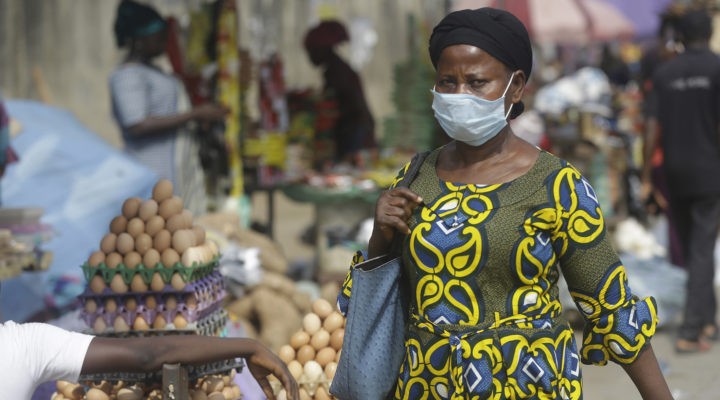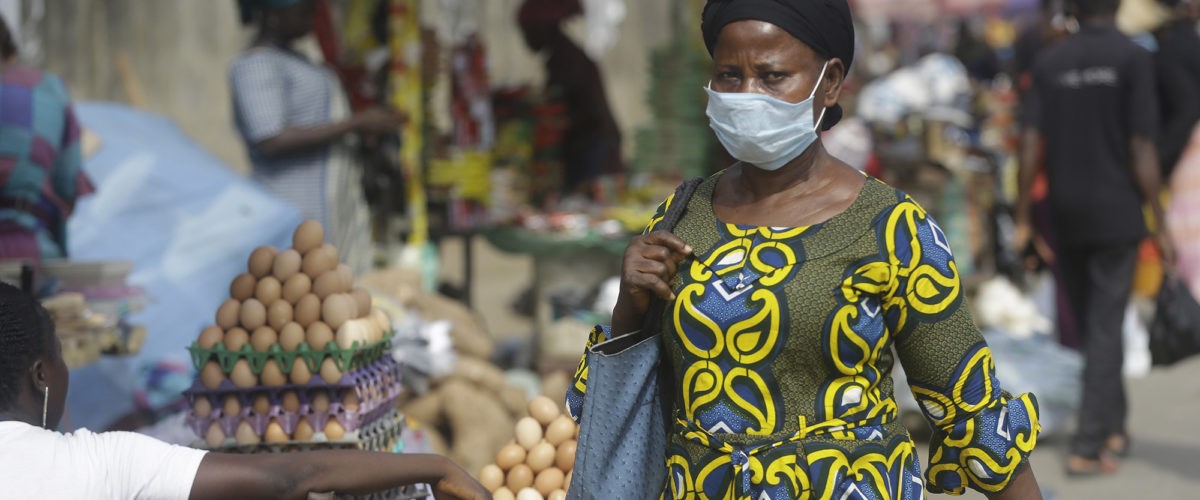How is it that Nigeria, a country of about 200 million people, has experienced only 1,449 deaths from COVID-19, while the United States, a country of 331 million, has experienced 400,000 deaths?
Ask some Nigerians and, because the country is deeply religious, they might see in the lower death rate evidence of God’s kindness. Be they Christian, Muslim or traditionalist, many Nigerians believe God has heard the prayer of God’s people at a time of a deadly pandemic.
While no one may be able to prove or disprove the role of God in the COVID pandemic, Nigeria — despite its known infrastructural deficit — may have an advantage because of facilities already on the ground and because of experience battling an earlier infectious crisis, Ebola.
Nigeria may have an advantage because of facilities already on the ground and because of experience battling an earlier infectious crisis, Ebola.
The Ebola crisis
On July 20, 2014, a Liberian national named Patrick Sawyer arrived in Nigeria from his country to attend a conference but ended up spreading fear among Nigerians when he was diagnosed with the Ebola virus at a hospital after arriving in the country. Prior to that day, Nigeria had no known record of the disease that was feared across Africa as strange and deadly. For a foreigner in Nigeria to be identified as a carrier not only sparked anxiety, but diverse reactions. The outrage was such that even Goodluck Jonathan, the country’s then-president, a man not known to easily lose his cool, described Sawyer as “a crazy man.”
Just as Sawyer was a perhaps unwitting carrier of Ebola in Nigeria, Thomas Eric Duncan, also a Liberian citizen, traveled out of his country to the United States of America two months after Sawyer’s ill-fated trip. Within days after arriving in Dallas, Duncan was diagnosed with the Ebola virus. That story also rocked a nation, spreading fear.
Like Sawyer, Duncan died of the illness.

Both cases drew attention to Liberia and Nigeria, as attention focused on how they would fare in battling the virus. To ensure that the disease did not spread among its citizens beyond the few hospital staff that would soon begin to show signs of illness, leading to the death of at least two of them, Nigeria, in a rare move, put in place a strategy to eliminate the virus, and in the process earned accolades from within and outside the country.
Liberia, on the other hand, had a more difficult time battling the virus, given the large number of people affected in the country. By the time the disease was contained and eradicated, a lot of human and financial resources had been deployed fighting it.
The medical facilities created then, and experience garnered in tackling the virus, are believed to have aided both countries and neighbors such as Guinea, Sierra Leone and Democratic Republic of the Congo in the fight against COVID-19.
Lessons applied to COVID-19
Curiously, just as in 2014, the first reported coronavirus case in Nigeria was traced to a foreigner. In a study titled “COVID-19 Outbreak Situation in Nigeria and the Need for Effective Engagement of Community Health Workers for Epidemic Response,” authored by Whenayon Simeon Ajisegiri, Olumuyiwa Odusanya and Rohina Joshi, the researchers report that the first case of COVID-19 was confirmed in Lagos State on Feb. 27, 2020.
This case was a 44-year-old Italian citizen who arrived from Milan, Italy, on Feb. 24 and presented at a health facility on Feb. 26. Since then, the report adds “the country has continued to experience an increase in the number of cases, which has spread across several states,” and “while a majority of the initial cases were imported, most of the new cases have no travel history or contact with such people.”
Nigeria’s Primary Health Care system is the bedrock of the country’s medical system, and Community Health Workers are the frontline workers. In addition to their normal duties, these workers played a critical role in the response to the Ebola outbreak in 2014.
Based on lessons learned from the Ebola outbreak, the Nigeria Center for Disease Control strengthened the country’s medical laboratory capacity and helped 22 of the 32 states to establish emergency operation centers. They also trained rapid response teams in all 36 states.
These actions by Nigerian authorities are believed to have helped the country’s fight against COVID-19.
Again, based on lessons previously learned, Nigeria instituted bans on social and religious gatherings and restrictions on travel to limit disease spread.
These actions by Nigerian authorities are believed to have helped the country’s fight against COVID-19 — even as some doubt the reported infection figures, given the country’s low testing capacity.
By the first week of January 2021, Nigeria reportedly had carried out about 1 million COVID tests, a dismal figure compared to South Africa, which has done more than 6 million tests. South Africa leads the continent’s reported COVID-19 death statistics, with 36,467 deaths as of Jan. 15.
Critics question the count
Critics argue that more testing could reveal more COVID patients in Nigeria, Africa’s most populous nation, where many citizens flout safety rules and continued attending churches and mosques and social events in spite of government’s directives.
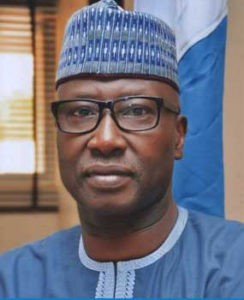
Boss Mustapha
In late December, the chairman of the country’s presidential task force, Boss Mustapha, raised alarm over confirmed COVID-19 cases nationwide, which he said “is similar to the second wave of infections occurring in other countries across the world.” He blamed the situation in part on a “sudden increase in social gatherings involving large congregations from different parts of the country, and the world, at events such as weddings, religious activities, political rallies, conferences and end-of-year celebrations.” And despite the lessons learned from Ebola, COVID appears to be spreading again because of breaches of travel protocols at airports, he added.
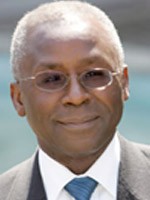
Oyewale Tomori
Despite these setbacks, Nigeria’s efforts to battle COVID-19 have not fared badly, said Oyewale Tomori, a professor of virology and former president of the Nigerian Academy of Science. In a recent interview with Channels TV, he said: “When you look at the number of deaths, I think we’ve done quite well, although that is also qualified because we don’t know exactly how many people actually end up in the hospital who have the disease, how many people decide to do home treatment without coming (to the hospital). So our figures, both the number of cases and number of deaths, could be suspect. But when you look at the case fatality rates, we are not worse off than many African countries.”
The experience in Sierra Leone
In Sierra Leone, another country badly hit by Ebola in 2014, Mohamed Konneh, news editor at Standard Times newspaper, said the country’s experience battling the Ebola virus was indeed useful in the COVID fight. Sierra Leone has reported a much lower COVID infection and death rate compared to Nigeria’s.
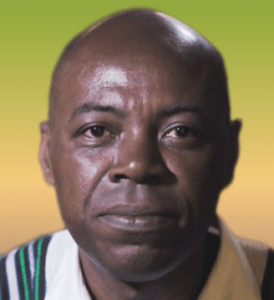
Mohamed Konneh
“Lessons and experiences from the Ebola (epidemic) is the reason Sierra Leone was able to control the coronavirus even before its first index case,” Konneh reported. “The Ebola taught us a bitter lesson and the reason why Sierra Leone was able to deal with the corona this way. Death is still low and even in those said to have the virus it is not as severe as initially thought.”
As of Jan. 14, the country reported 2,864 confirmed cases of COVID-19 and 77 deaths.
Konneh attributes the low mortality rate to effective sensitization on the danger posed by the disease and the role of the people in combating it.
“The government has done so much in that direction, and this is as a result of lessons learned during the Ebola outbreak,” Konneh said. “Government gives daily updates, and there are Corona messages on almost every radio and television station across the country.”
This apparent success was made possible by the participation of “every sector … including religious leaders, chiefs, community leaders and many more. Also the aspect of social mobilization was key in the fight. The enforcement of regulations and putting the military at the forefront in fighting the disease was key.”
Again, a lesson learned from Ebola is the essential need to enforce targeted quarantining of all categories of COVID-19 patients. Sierra Leonean authorities, Konneh said, “quarantine individuals who are at high risk for an infection without testing the person for infection. This helps in breaking transmission and was another powerful tool during the Ebola outbreak.”
Still difficult in Liberia
Anthony Stephens, a journalist, said the situation in Liberia is not that rosy. That country’s Ebola experience, which he hoped would guide the Ebola challenge going forward, didn’t amount to much, owing in part to poor infrastructure, he said.

Anthony Stephens
“All of the Ebola Treatment Units were shut down after the Ebola outbreak. So, in terms of physical infrastructure, we didn’t have those when COVID-19 broke out,” he explained. “But the blessings from the Ebola outbreak are trained medical personnel. They were ready for the battle, though with limited or no logistics, including PPEs, face coverings, gloves and goggles.”
“Initially, I had no fear, given the fact that we had done very well and had learned harsh lessons from our fight against Ebola. But when COVID-19 struck in March, it proved me wrong, exposing the weakness in our health care system. The pandemic also showed that we were not prepared as a country to fight the virus. Many people became infected by it, amid doubts by some citizens about its existence in the country.
“Recently, health authorities announced a surge in cases, but the public is not adhering to protocols and measures they’ve put in place to stay safe from the virus,” the reporter added. “There are violations of social distancing rules and no wearing of face coverings in public places as instructed by health officials.”
However, for context, death statistics in Liberia today appear far less scary than what was reported during the Ebola epidemic of 2014 and 2015. The National Public Health Institute of Liberia reported a total 84 COVID-related deaths as of Jan. 15, one of the lowest rates in Africa. During 2014 and 2015, Liberia recorded 4,810 deaths from Ebola. Combined, Liberia, Guinea and Sierra Leone recorded more than 11,000 deaths from Ebola in a two-year period.
Today, the combined 55 member states of the African Union reported 77,720 COVID-19 deaths — a large number but the lowest death rate of any continent on the globe, where more than 2 million people have been killed by COVID — with the United States leading the death count.
Anthony Akaeze is a freelance religion reporter and Nigerian native who now lives in Houston.
This story is made possible by gifts to the Mark Wingfield Fund for Interpretive Journalism.

